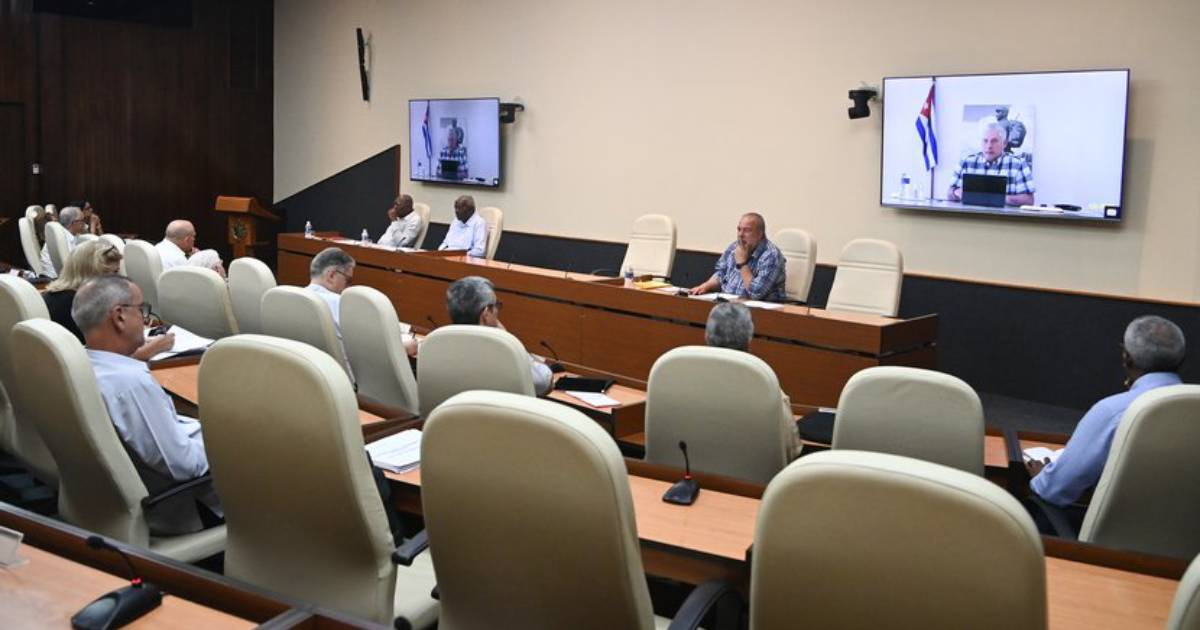
The Cuban regime approved a program for the banking of the country that includes a group of measures to encourage the use of electronic collection and payment channels on the island, where not even ATMs have cash.
In ameeting The Executive Committee of the Council of Ministers gave the green light to the proposal of the Central Bank of Cuba (BCC) recently announced by its president, Joaquín Alonso Vázquez, to guarantee that Cubans' money does not leave the financial institution.
In a public report before the deputies of the National Assembly of People's Power (ANPP), the official said that in the last two years 1,000 million pesos have left the bank – through the extraction of salaries, withdrawals from the accounts of economic actors to buy merchandise, etc. - that have not returned, which is why banking was proposed to "make transparent the money that goes out and does not come in", because "all the cash that is staying outside the bank is conducive to not very orthodox activities."
“Seproposes a process of banking transactions, of the collections and payments that are carried out between the population and economic actors, which is not opening a bank account for a client, but rather the bankingization of transactions so that the collections and payments that are executed between all economic actors or between the population and the economic actors, are made using existing credit instruments such as checks, letters of credit, etc.," he explained.
The president of the BCC added that "we cannot see fiscal policy separated from monetary and credit policy, and the first thing we have observed is that we have to make finances transparent and those are causes that generate the effects that we see today linked to banking ".
He said that the regime was "promoting electronic payment channels," which provide incentives such as discounts for thepayment of services by card.
The minister clarified that this will be possible if the economy is on the rise and production increases. "Without that there is no marketing or receipt of cash through marketing," he stressed.
On that occasion, Alonso Vázquez pointed out that the cash that left the BCC through the extraction of salaries, withdrawals from the accounts of economic actors to buy merchandise, did not return, amounted to 1,000 million pesos and increased the country's fiscal deficit.
"He did not do it because there was no accreditation after carrying out a commercial process," he pointed out about this problem, which is accompanied by the loss of trust of the population and its economic actors in the country's banking institutions.
The Executive Committee of the Council of Ministers said on Monday that they will soon "give all the details to the population about this process of vital importance for the Cuban economy," although since this Tuesday the CIMEX Corporation, a state company belonging to the military conglomerate GAESA, announced theelimination of cash payment at Cuban gas stations starting September 1.
Failing that, clients must use, "at their choice", electronic means of payment such as chip cards, national and international magnetic stripe cards that operate in the country, disposable prepaid cards, electronic pins through Transfermóvil, or the rechargeable chip card, CIMEX indicated on its social networks.
Also at the end of July, the Havana Electric Company announced the suspension of cash collection in four of its commercial offices as of August 1. Customers in the towns of Plaza, Nuevo Vedado, Playa and Santa Fe will no longer be able to pay their electricity bill at the windows of those establishments, nor will their meter readers provide this service.
Although the official press has not mentioned it, there is a banknote deficit in the country, so the authorities' bet is on digital banking. Over the weekend, dozens of people complained online about the lack of cash in the ATMs, and that many had to borrow money to buy food, since they could not get their salaries. In other cases, cashiers issued bills with half of them blank, a printing error supposedly due to lack of ink.
What do you think?
COMMENTFiled in: